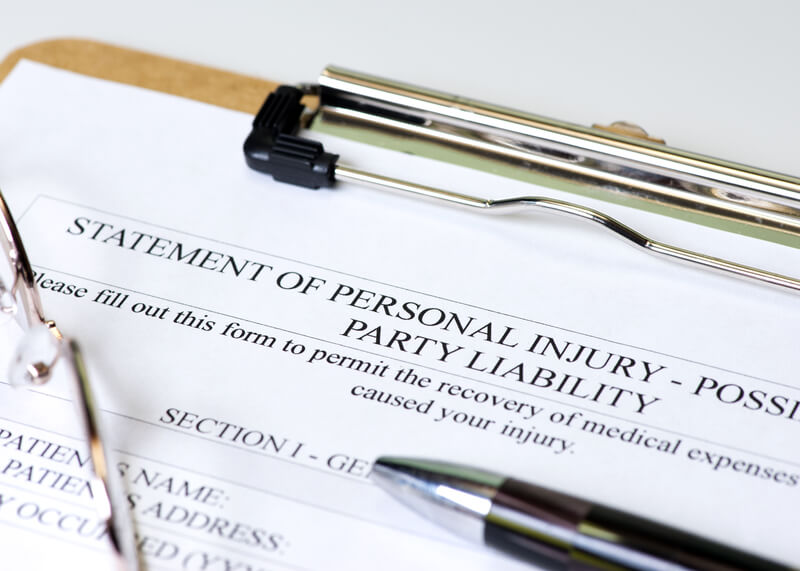Most doctors, nurses and healthcare providers perform their work with dedication, compassion and care. They apply their years of training and expertise to their patients, all while working within a sprawling, not-always-coordinated healthcare system that demands a lot from them.
Sometimes, though, mistakes happen. Physicians may face burnout or documentation expectations that make it hard to focus on treatment. Nurses may not have the staffing to provide quality care or the institutional safeguards to eliminate errors. Health systems may rush training, make poor hires or ignore staff complaints.
But patients always deserve care that’s free of errors, omissions or negligence, both from their providers and their healthcare systems. They deserve medical education, respect, trust and follow-up care, whether they’re facing a complex condition or a simple-to-treat injury. If care drops below the expected standard and causes harm, patients may be able to pursue a medical malpractice claim.
Not every medical error or case of negligence translates to a medical malpractice claim. To have a medical malpractice case, you must:
- Prove that your doctor, nurse or other provider had a duty to care for you (i.e., you were their patient)
- Prove the provider was careless
- Prove that their carelessness, omission or neglect caused you harm or injury, or that it resulted in your loved one’s wrongful death
- Prove that you suffered as a result of their care, whether physically, mentally or financially
Medical malpractice or medical negligence is challenging to prove, and it takes a skilled personal injury law firm to directly link the provider’s decisions or actions to your poor outcome. But if you find yourself in the following five circumstances, an Atlanta medical malpractice attorney may be able to help.
- Your provider misdiagnosed your condition or delayed your diagnosis
Many medical malpractice claims center on a delayed diagnosis or a misdiagnosis.
With a delayed or incorrect diagnosis, you may miss valuable treatment time, or the disease progresses to a point where it’s beyond treatment. With a misdiagnosis, you may suffer through the pain, inconvenience and expense of unnecessary procedures.
Some conditions are, of course, challenging to diagnose, but while such cases are undeniably frustrating, they’re not necessarily medical malpractice.
Medical malpractice requires comparing your provider to a hypothetical provider of similar experience and expertise. Would another doctor have diagnosed you correctly based on your symptoms, or referred you to a specialist who could have done so? Would another provider have read your test results more carefully or considered your family history before diagnosing?
Examples of misdiagnosis or delayed diagnosis claims might include:
- An ER doctor misdiagnoses heart attack symptoms as anxiety, sending the patient home without tests.
- A physician misdiagnoses appendicitis, leading to a negative appendectomy (an unnecessary appendectomy).
- A gynecologist fails to notify a patient of abnormal screening results, allowing cancer to progress unchecked.
- A doctor doesn’t order a screening for a patient with lung cancer symptoms and a smoking history, leading to delayed diagnosis.
- Your nurse or provider made a medication error
Medication errors are one of the most common medical malpractice issues. They can happen at any point from when the physician writes the order to when a nurse administers the drug. While patients sometimes receive the wrong drug, or accidentally receive another patient’s medication, most medication errors center on incorrect dosing, either from the physician, the pharmacist or the nurse.
Physicians can also be liable for medical malpractice if they fail to consider the patient’s other medications, allergies or health conditions when prescribing. Providers have to take the time to talk to patients about medication risks, side effects and alternatives, obtaining their informed consent.
An invested healthcare system, whether it’s a hospital, clinic or nursing home, helps reduce medication errors through training, double-check protocols and technology like barcode matching. Ultimately, though, it’s up to medical professionals to ensure that they stick to the “five rights” of medication use: the right patient, drug, dose, time and route.
Types of medical malpractice can span numerous medical mistakes.
Examples of medication error claims might include:
- A physician writes a prescription without a leading zero and the patient is given 5 milliliters of a drug instead of 0.5 milliliters.
- A pharmacist misreads a doctor’s order, filling a similar sounding drug.
- A nurse administers a medication but doesn’t document it in the system, and a nurse in the next shift gives a second dose.
- A nursing home employee mixes up medical records and gives one patient’s medication to another with a similar name.
- Your surgeon made an error in your procedure
When people think of medical malpractice cases, surgical errors often come to mind first. Surgery requires years of experience, intense concentration, practical skill, choreography with a team and physical stamina. But surgery—even for a routine procedure—doesn’t always go as expected. Not all errors are medical malpractice, however. Like other forms of medical malpractice, the surgeon must have performed in a way that was below the standard of care and made choices that caused the patient harm.
Examples of surgical error malpractice claims might include:
- A surgeon operates on the wrong patient, the wrong body part or makes an incision in the wrong place.
- A surgeon leaves an instrument or sponge behind in a patient.
- A surgeon fails to refer an unfamiliar procedure to a colleague and causes nerve damage to the patient.
- A surgeon is under the influence of drugs or alcohol.
- A nurse fails to provide proper post-op care or ignores signs of distress.
Anesthesiologists can also make serious errors in surgery, leading to profound disability or death. The margin for anesthesia error is incredibly small, and a reckless provider might fail patients by:
- Not asking about potential complications
- Not providing adequate pre-op instructions on fasting or medication use
- Not monitoring vital signs
- Administering an incorrect dose of anesthesia
- Using defective equipment
- You or your child suffered a birth injury
While most births are safe for the mother and baby, injuries can happen, even when the mother has received quality prenatal care and delivers at a birthing center. Some injuries are severe enough to cause lifelong conditions in the child or lead to fetal or maternal death.
Not all birth injuries are the result of physician error, however, and even skilled doctors make mistakes that others in their position might make as well. Medical malpractice cases arise when the doctor, nurse or other provider makes choices out of line with the standard of care or acts in a negligent manner.
Examples of birth injury malpractice claims might include:
- A medical provider sees signs of fetal distress and does not proceed to an emergency C-section.
- An obstetrician doesn’t treat or plan for a complicating condition like gestational diabetes.
- A doctor uses forceps or a vacuum extractor incorrectly.
- A labor and delivery nurse fails to act when a mother shows signs of hemorrhaging.
Malpractice claims can relate to treatment during the pregnancy, during birth or immediately after. Babies injured at birth might experience developmental delays, fractures, seizures, cerebral palsy or nerve damage. Mothers may experience hemorrhages, anesthesia errors, infections, broken bones, future fertility challenges or postnatal PTSD from the trauma of the difficult birth.
0Birth injury settlements help support families struggling to provide the services their child needs, like therapy, home care, special education or home modifications. Malpractice settlements can also compensate for lost income as the mother recovers from her injuries or one parent has to stop working to care for the child.
- Your dentist was negligent
Dental malpractice covers both harmful acts, like a botched extraction, and omissions. Most folks see their dentists on a regular schedule, allowing for early interventions and less invasive treatments. When a dentist misses a developing condition, it can ultimately result in a malpractice claim.
Examples of dental malpractice claims might include:
- A dentist incorrectly administers a local anesthetic, causing nerve damage.
- A dentist extracts the wrong tooth, is careless during an extraction or chooses extraction over a less invasive treatment.
- A dentist fails to identify obvious signs of oral cancer in regular checkups.
- A dental clinic doesn’t properly sanitize instruments, leading to a patient infection.
How do I know if I have a medical malpractice case in Georgia?
Medical malpractice lawsuits require a high burden of proof. A medical malpractice attorney gathers evidence to build your case, lines up expert witnesses and demonstrates how you were negatively affected by the care you received. The biggest challenge is demonstrating that another provider would have acted differently under similar circumstances, and that your provider’s actions directly led to harm.
Your Atlanta medical malpractice lawyer also determines whether you’ll sue an individual, their employer or both. An employer, like a hospital, clinic or nursing home, can be negligent if they didn’t train their staff or respond to complaints about an unsafe provider. They can also be held liable simply for employing the doctor or nurse. Doctors can have complicated employment relationships with hospitals and clinics, working as independent contractors or working for a physician practice that’s leased to a hospital system. An attorney will determine which parties are at fault.
Medical malpractice suits usually end with a settlement from the medical malpractice insurer. An attorney will be able to negotiate this settlement and make sure it actually covers your needs and future care. If the insurer won’t settle, the attorney can take the case to court.
How long do you have to sue for medical malpractice in Georgia?
In Georgia, you have two years to bring most medical malpractice suits. However, the law accepts that some conditions aren’t immediately apparent. The statute of repose extends a grace period of up to five years for situations where harm became obvious only well after the procedure, delayed diagnosis or other act of negligence. If a foreign object, like a sponge or medical tool, is left in the body after a surgery, the statute of limitations drops to one year.
Georgia also requires an affidavit from a medical expert when you file suit (or immediately after), supporting your claim that your provider didn’t meet the standard of care.
While Georgia has no limit on economic damages—compensation for medical care, lost earnings or future health expenses—the state capped noneconomic damages at $350,000 for a claim against a provider. Later, the State of Georgia’s Supreme Court ruled the cap unconstitutional, meaning there’s no longer a cap on compensation for noneconomic damages like pain and suffering. If you have questions about the specifics of your personal injury case, contact an experienced medical malpractice attorney.
Contact a medical malpractice lawyer today
It’s devastating to be harmed by a healthcare professional you trusted. If you’ve been hurt by a misdiagnosis, birth injury, medication error or other provider mistake, a medical malpractice settlement can help you cover your expenses and get the treatment you need. At Litner + Deganian, we understand how to assess a case, locate compelling medical experts and negotiate for a fair settlement or verdict. Give us a call to talk through your options in a free consultation.












